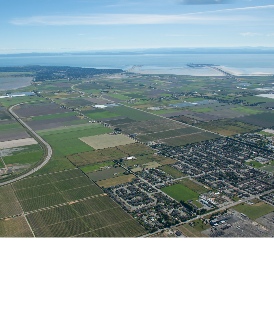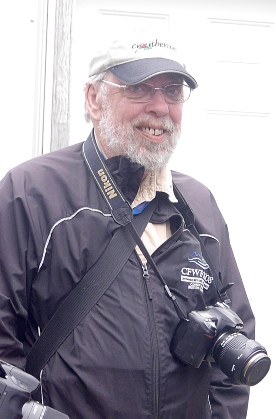VANCOUVER – Lower Mainland farmland could be sacrificed to ensure agri-
“We do not want to lose agricultural land but it’s no good producing products that you can’t move, either,” MacAulay said, answering a question from Country Life in BC following a presentation to Greater Vancouver Board of Trade members on September 12. “So it’s one way or the other – the port in Vancouver has to be efficient to move the products to market. The Asian market is a big market, only going to get larger, and we want to be there.”
MacAulay was in Vancouver as part of a tour of Western Canada that stretched from Saskatchewan grainfields to a craft brewery on Vancouver Island.
Opportunities to boost agri-
But the thrust of his remarks focused on Vancouver’s port facilities and the launch pad those provide for Asia-
“We have to make sure that they can handle the products as fast as they possibly can and as efficiently as they possibly can,” he said.
MacAulay’s comments won’t sit well with municipalities such as Richmond or local farmland advocates who have challenged the Port of Vancouver’s plans to tap local farmland for port-
Yet the port, as a federal entity, holds the trump card: while it has pledged to file exclusion applications to remove protected farmland from the province’s Agricultural Land Reserve, it’s under no obligation to do so as an arm of the senior level of government.
“I don’t think we would be bound [by the Agricultural Land Commission],” Robin Silvester, president and CEO of the port authority, said earlier this year. “We have supremacy.”
Site Economics Ltd. prepared a report for the port authority in October 2015 that estimates port activities will require approximately 2,700 acres by 2030. The demand could cost Delta alone 1,500 acres of productive farmland, according to the Delta Farmers’ Institute.
Silvester believe local agriculture is “almost meaningless” when it comes to local food security but that stance is at odds with MacAulay’s message to the Greater Vancouver Board of Trade.
Responding to a question from the audience regarding organic production, MacAulay said his job is to ensure farmers in Canada are capturing local markets before venturing into exports.
“There are products that we aren’t producing enough of, and I want to help you produce those products so that you receive the benefit,” he told his audience, which included very few farmers. “My responsibility is to help you, and I want to do it.”


